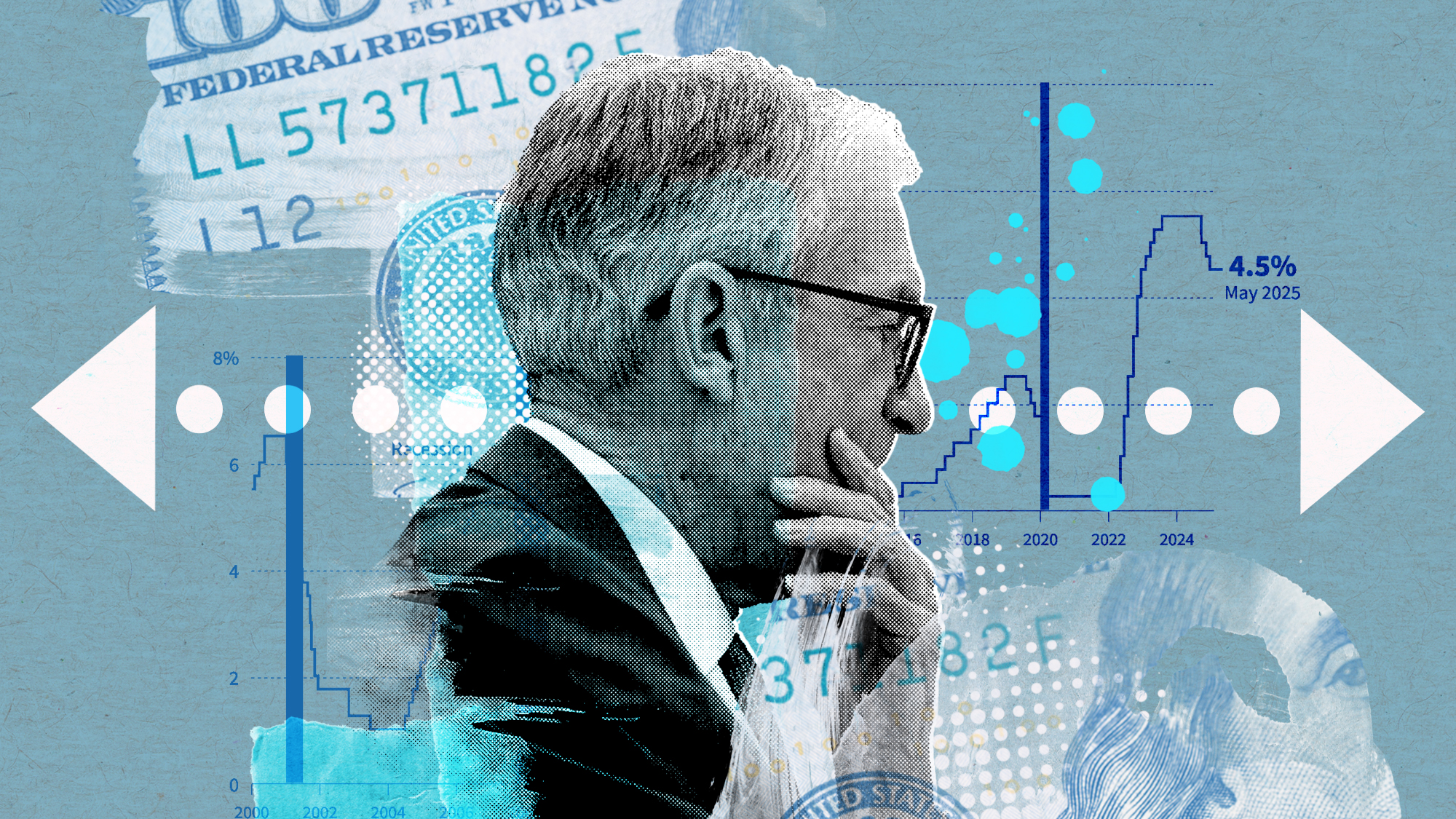IRS flummoxed by state rebate rules
And more of the week's best financial insight

A free daily email with the biggest news stories of the day – and the best features from TheWeek.com
You are now subscribed
Your newsletter sign-up was successful
Here are three of the week's top pieces of financial insight, gathered from around the web:
The 5 percent savings yield returns
Savers have a golden opportunity to "earn more money on their cash" in 2023, said Lorie Konish at CNBC. The Federal Reserve has used a string of interest rate hikes "to combat record-high inflation." The latest quarter-point increase came just two weeks ago, and after the blockbuster January jobs report "the interest-rate increases are expected to keep coming." The Fed's hikes are letting banks raise the rates they pay on savings accounts. Primis Bank's online savings account last week became the first to top 5 percent in 15 years. Rates on certificates of deposit also are soaring, with one and two-year CDs paying up to 4.85 percent. And this is happening as the Fed's actions pull inflation down, so "the after-inflation return on cash is poised to get a lot better this year."
Nightmare layoff for H1B workers
The wave of layoffs in the technology industry is hitting foreigners with temporary work visas especially hard, said Te-Ping Chen in The Wall Street Journal. Under the terms of the H1B visa program, they have 60 days to find a new job. After that, they have to leave. If they are traveling abroad when they're fired, they can't use these visas to get back into the country, unless they find a new position from abroad. Tech firms are increasingly reluctant to hire. And with the number of tech jobs in the U.S. falling by 32,000 last month, according to IT industry trade group CompTIA, it's extremely hard to land a new job before the grace period runs out. The workers on H1B visas include not only recent grads but also some tech specialists who have been in the U.S. for years, including Indian nationals who have been waiting decades to gain permanent residency.
The Week
Escape your echo chamber. Get the facts behind the news, plus analysis from multiple perspectives.

Sign up for The Week's Free Newsletters
From our morning news briefing to a weekly Good News Newsletter, get the best of The Week delivered directly to your inbox.
From our morning news briefing to a weekly Good News Newsletter, get the best of The Week delivered directly to your inbox.
IRS flummoxed by state rebate rules
Tax season is underway, said Tara Siegel Bernard in The New York Times, but the Internal Revenue Service wants you to "hold off on filing your income tax return" if you are one of the millions of people who got a one-time rebate from your state in 2022. Nearly two dozen states sent payments to taxpayers last year as relief against high inflation. The IRS is still determining whether the money "should be treated as taxable income on their federal returns." While disaster relief and social benefits for low-income households generally aren't taxable, other payments might be; tax experts say the IRS has to wade through the programs state by state.
This article was first published in the latest issue of The Week magazine. If you want to read more like it, you can try six risk-free issues of the magazine here.
A free daily email with the biggest news stories of the day – and the best features from TheWeek.com
-
 Film reviews: ‘Wuthering Heights,’ ‘Good Luck, Have Fun, Don’t Die,’ and ‘Sirat’
Film reviews: ‘Wuthering Heights,’ ‘Good Luck, Have Fun, Don’t Die,’ and ‘Sirat’Feature An inconvenient love torments a would-be couple, a gonzo time traveler seeks to save humanity from AI, and a father’s desperate search goes deeply sideways
-
 Political cartoons for February 16
Political cartoons for February 16Cartoons Monday’s political cartoons include President's Day, a valentine from the Epstein files, and more
-
 Regent Hong Kong: a tranquil haven with a prime waterfront spot
Regent Hong Kong: a tranquil haven with a prime waterfront spotThe Week Recommends The trendy hotel recently underwent an extensive two-year revamp
-
 How your household budget could look in 2026
How your household budget could look in 2026The Explainer The government is trying to balance the nation’s books but energy bills and the cost of food could impact your finances
-
 With economic uncertainty, 2025 looks to be a 'No Buy' year
With economic uncertainty, 2025 looks to be a 'No Buy' yearIn the spotlight Consumers are cutting back on splurges to combat overconsumption
-
 3 tips to lower your household bills
3 tips to lower your household billsThe Explainer Prices on everything from eggs to auto insurance to rent have increased — but there are ways to make your bills more manageable
-
 What's next for US interest rates?
What's next for US interest rates?The Explainer A pause after a series of cuts
-
 Where will inflation go next?
Where will inflation go next?The Explainer Believe it or not, inflation is easing up
-
 What is shrinkflation and why is it happening?
What is shrinkflation and why is it happening?The Explainer The practice reduces the size of a product without lowering the price — and it's perfectly legal
-
 Prices are going down. Here's where you can see the difference.
Prices are going down. Here's where you can see the difference.The Explainer 'An era of price hikes is fading,' but that doesn't mean prices will all come down
-
 5 tips when retiring amid market volatility
5 tips when retiring amid market volatilityfeature In a turbulent market, diversification becomes especially important